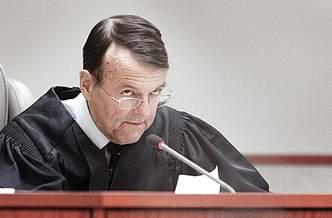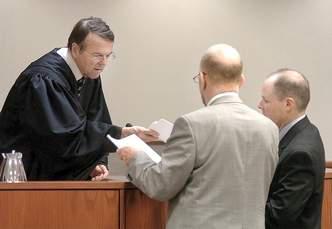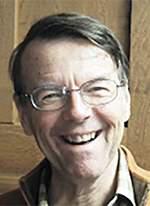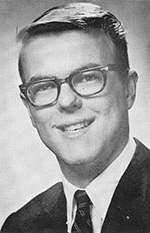|
Longtime Walworth County judge retires, reflects on criminal justice system
By Jonah Beleckis
ELKHORN—Court cases are like puzzles, now-retired Walworth County Judge James Carlson says. Some are easy to put together. Some are difficult. Carlson, 72, of Whitewater, retired Monday after 37 years as a judge. He still remembers certain cases, and most of them were the difficult ones. They include his first murder case, in which the victim's mother publicly forgave the perpetrator through a local newspaper. Today, Carlson said, there are groups that allow victims to meet with prisoners so they can unload and heal. Carlson also recalls two young women, recent college graduates, who were killed by a drunken driver who had at least five prior arrests for drinking and driving. Today, Wisconsin remains the only state where the first intoxicated driving offense is not a criminal charge. Carlson blames that, in part, on the alcohol industry's lobbying in the state Legislature. Carlson remembers the Rev. Donald McGuire, a Jesuit priest from Illinois who was convicted in 2006 on five charges of indecent behavior with a child and sentenced to seven years in prison. After the case wrapped up, Carlson said, nearly 40 people came forward to say they had been molested. Today, the story of priest sexual abuse is still in the news, particularly after the movie “Spotlight” won an Oscar for its portrayal of The Boston Globe's investigation in the early 2000s. Some of these ills of society have gotten better over time. Some have gotten worse. In Carlson's early days on the bench, it was unusual to see a person in court for a second drunken-driving offense. Recently, he has seen people with more than nine drunken-driving cases on their records. He also has seen more domestic abuse cases over the years. “I was disappointed by the fact that a lot of these cases where I had these committees working together to solve community problems, we don't seem to be winning,” Carlson said. “Maybe we're just getting to be a bigger community, but we're getting more and more repeat offenders. That's disappointing. I'm not sure how to go about it other than one case at a time.” What kept Carlson coming back to work each day were the people who helped him put difficult puzzles together, he said. On Monday, his last day, he went out to a goodbye lunch with two of them: clerk Laurie Brown and court reporter Rhonda Boss. “They are essential for me to do what I'm doing,” Carlson said. “They're very important people.” Carlson served as Walworth County district attorney from 1976 to 1979. He was appointed to the bench after Judge Dewey Scholl died while playing tennis with Bob Kennedy, who was Carlson's associate at the time and later served as a judge for 24 years. “I did not even apply for the job because I had just been elected district attorney,” Carlson said. “I was questioning if I was worthy.” Carlson quickly became familiar with the position, but he said many people do not fully understand what a judge does. “I had a case very recently, and they were asking me to forgive this person who had committed a crime,” Carlson said. “What the judge (considers) in a criminal case is the serious nature of the crime, the need of the defendant for rehabilitation and the public safety. I can't all of a sudden be charitable and use that as the criteria to forgive this person myself.” To clear up some of that mystery, the clerk of courts office and a local veterans organization let in high school students so they can learn how the courts function, Carlson said. Carlson said the public's lack of understanding is evident when people represent themselves instead of hiring a lawyer. The court can only go so far in helping people understand the proper procedure, Carlson said. As he finishes his first full week of retirement, Carlson will not have to worry about those difficult cases. He also won't have to answer phone calls in the middle of the night from police who want blood or breath sample search warrants, which often are needed in intoxicated driving cases. His health is improving. Carlson said he has been cancer-free for three months after a nearly two-year battle with esophageal cancer and melanoma. His retirement plans include typical activities, such as traveling and getting back on the golf course. He also said he would like to read something other than a law book and continue cross-country skiing. He hopes to continue investing time in various civic and church organizations, he said. He is the president of the Wisconsin and Upper Michigan territory for the Secular Franciscan Order. Through his work as judge and a personal life filled with mission trips and church involvement, Carlson has sought to improve his community. He said he would like to continue that. He does not, however, anticipate any puzzles in his future.
|
.
Any original material on these pages is copyright © BishopAccountability.org 2004. Reproduce freely with attribution.



